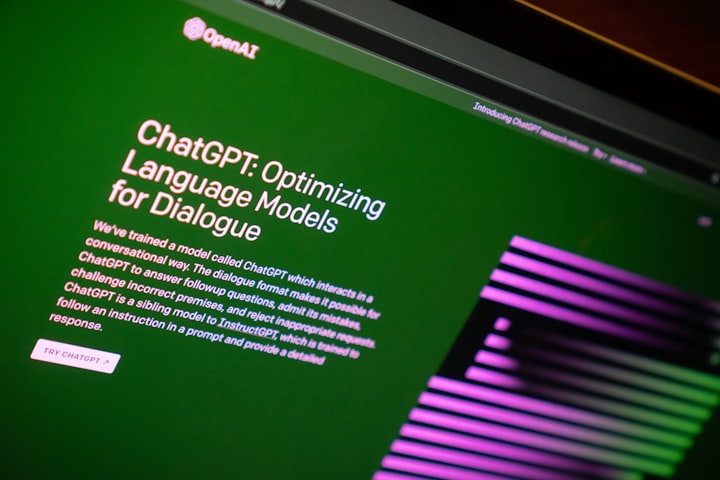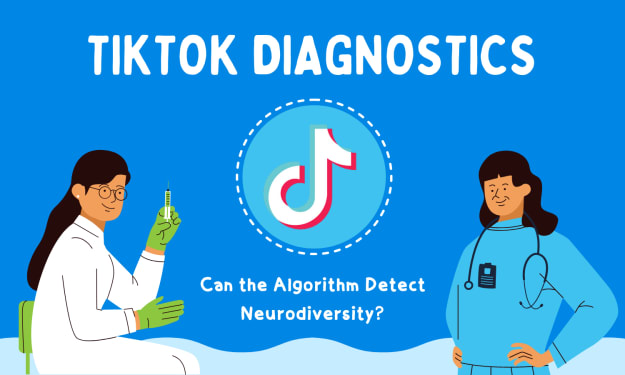Can You Tell Which Paragraphs Were Written by an AI Chat Bot?
Even the Most Discerning Reviewers Struggle to Tell the Difference Between ChatGPT and Real People. Can You?

Can you tell the difference between AI-generated text and authentic writing? The following eight passages were either generated by ChatGPT or written by real people. After taking your guess, click the links below to see if you’re correct.
The links will either lead you to the source of the writing or ChatGPT.
Fun Facts About Pyramids
The world's largest pyramid is not in Egypt, but in Mexico. The Great Pyramid of Cholula, located in central Mexico, is a massive ancient structure covering an area of 4 acres and towering over 150 feet high. It was built by the Maya civilization over a period of several hundred years, and was dedicated to the god Quetzalcoatl. Despite its impressive size, the pyramid was actually covered by another structure, which gives it the appearance of a natural hill. It was only rediscovered in the 20th century, when excavations revealed the true scale of the pyramid beneath the surface.
The Bias of Control
We like to feel like we’re in control. When something threatens that and suddenly we find more rules or feel like a problem is beyond our abilities, we push back. Our brains prefer that we feel existentially safe than acknowledge the earth-shattering lack of autonomy we are subject to.
A common result of this bias is mentally reducing or even considering the threat nonexistent. This might ring a bell for you. In moments where social control is diminished, the effect can look even more intense. When people feel they have lost their position or power, their bias can lead them to wholly reject narratives that they dislike, even when the info is irrefutable . This phenomenon is probably also familiar to you.
The Start of the Industrial Revolution
The invention that is generally considered to have started the Second Industrial Revolution is the Bessemer process, which was developed by Henry Bessemer in 1856. The Bessemer process is a method for mass-producing steel by blowing air through molten iron to burn off impurities. This process allowed for the efficient and inexpensive production of high-quality steel, which in turn led to the development of new technologies and industries such as railroads, bridges, and skyscrapers. The Second Industrial Revolution also saw advancements in other areas such as electricity, oil, and chemicals.
An Empty Street at Night
Empty streets in darkness lay,
Not a soul to be seen or heard.
Silent buildings loom and sway,
In the stillness of the night.
A lone streetlamp casts its light,
On the pavement, wet and gleaming.
No cars or buses in sight,
Just the sound of rain softly streaming.
Windows, dark and void of life,
Reflect the moon's ethereal glow.
A ghost town, free of toil and strife,
In the peaceful stillness, aglow.
But as the night fades into dawn,
The streets will come alive once more,
With hustle and bustle, and a new day born,
And the empty streets will be no more.
How to Be More Environmentally Friendly
One way to be more environmentally friendly is to reduce our use of single-use plastics. Single-use plastics, such as plastic bags, straws, and disposable cutlery, are used only once before they are thrown away and often end up polluting the environment. To reduce our use of single-use plastics, we can bring our own reusable bags when we go shopping, use reusable straws or drink from a glass directly, and use washable utensils and plates instead of disposable ones.
On Natural Selection
To a reasonable mind the Divine attributes must appear, not diminished or reduced in some way, by supposing a creation by law, but infinitely exalted. It is the narrowest of all views of the Deity, and characteristic of a humble class of intellects, to suppose him acting constantly in particular ways for particular occasions. It, for one thing, greatly detracts from his foresight, the most undeniable of all the attributes of Omnipotence. It lowers him towards the level of our own humble intellects. Much more worthy of him it surely is, to suppose that all things have been commissioned by him from the first, though neither is he absent from a particle of the current of natural affairs in one sense, seeing that the whole system is continually supported by his providence.
On the Grasshopper and the Cricket
The poetry of earth is never dead:
When all the birds are faint with the hot sun,
And hide in cooling trees, a voice will run
From hedge to hedge about the new-mown mead;
That is the Grasshopper’s–he takes the lead
In summer luxury,–he has never done
With his delights; for when tired out with fun
He rests at ease beneath some pleasant weed.
The poetry of earth is ceasing never:
On a lone winter evening, when the frost
Has wrought a silence, from the stove there shrills
The Cricket’s song, in warmth increasing ever,
And seems to one in drowsiness half lost,
The Grasshopper’s among some grassy hills.
How to Brew Coffee
Start by gathering the necessary equipment: a coffee pot or French press, coffee filter, coffee grounds, and water.
Measure out the desired amount of coffee grounds and place them in the filter.
Fill the coffee pot or French press with the desired amount of water and heat it until it reaches the desired temperature (usually around 200 degrees Fahrenheit).
Place the filter with the coffee grounds into the coffee pot or French press.
Slowly pour the hot water over the coffee grounds and filter, ensuring that all of the grounds are saturated.
Allow the coffee to brew for a few minutes, usually around 4-5 minutes for a standard pot of coffee.
Remove the filter and coffee grounds from the pot or press.
Serve and enjoy your freshly brewed cup of coffee
The Thirsty Crow
After flying a long distance, a thirsty crow was wandering the forest in search of water. Finally, he saw a pot half-filled with water. He tried to drink from it but his beak wasn’t long enough to reach the water inside. He then saw pebbles on the ground and one by one, he put them in the pot until the water rose to the brim. The crow then hastily drank from it and quenched his thirst.
How to Boil an Egg
Place your eggs in a single layer on the bottom of your pot and cover with cold water. The water should be about an inch or so higher than the eggs. Cover the pot with a lid.
Over high heat, bring your eggs to a rolling boil.
Remove from heat and let stand in water for 10-12 minutes for large eggs. Reduce the time slightly for smaller eggs, and increase the standing time for extra-large eggs.
Drain water and immediately run cold water over eggs until cooled. Rapid cooling helps prevent a green ring from forming around the yolks.
–
How did you fare against ChatGPT? I’d love to see your score!
Comment on this article with how many you got right and how you could tell which were written by AI and which were written by real people! :)
About the Creator
Olivia L. Dobbs
Science Enthusiast, Naturalist, Dreamer, Nerd.
I crosspost my Medium articles here :)
You can find my main account on Medium: https://medium.com/@oliviadobbs13
Check out my science! -> bit.ly/DobbsEtAl
Reader insights
Outstanding
Excellent work. Looking forward to reading more!
Top insights
Compelling and original writing
Creative use of language & vocab
Easy to read and follow
Well-structured & engaging content
Excellent storytelling
Original narrative & well developed characters
Expert insights and opinions
Arguments were carefully researched and presented
Eye opening
Niche topic & fresh perspectives
Heartfelt and relatable
The story invoked strong personal emotions
Masterful proofreading
Zero grammar & spelling mistakes
On-point and relevant
Writing reflected the title & theme







Comments (23)
Bạn đang làm việc tuyệt vời
You're doing amazing work—keep it up, congratulations!
People should learn ai
If you need to know About chatGPT integration https://vocal.media/futurism/a-comprehensive-guide-to-chat-gpt-integration
When I first tested ChatGPT. I could easily spot the difference. The reason was I tried Non fiction and knew what's happening in that arena. AI is getting smarter with the next version but still you have to edit for long form.
Well, I got 8/8. AI text is easy to spot. I will get it every single time. I know the tellsigns. Human text sometimes gives out false positives for AI, but in this case I got it right.
I also wrote about AI https://vocal.media/futurism/artificial-intelligence-advancements-2vw3045m
great work, i have learnt so many things. i also wrote about AI if you want to read-https://vocal.media/futurism/sentience-unveiled
https://vocal.media/futurism/interdimensional-adventures-the-quantum-quandary-unveiled
See the detailed article at https://www.luxevogue.co.uk
https://vocal.media/futurism/alta-labs-a-p6-and-rohn-h40-redefining-wireless-connectivity
Also read https://vocal.media/futurism/transformers-6-the-globemaster
This is SO good. I've been toying with it myself. Chat GPT poetry is easier to spot than Chat GPT nonfiction. When you ask it to get creative, it gets iffy. I cannot get it to produce any sort of passable fiction or poetry because it fixates on certain metaphors, like weaving. It loves to weave. I know the weaving came from me because that's my favorite metaphor for interconnectedness and it has held onto that metaphor since I first started my chat, which is impressive on its own. You have to start new chats to slip away from these "threads." I know that AI will only rise in prominence, but I don't see how a writer could derive personal satisfaction from it. Financial satisfaction, perhaps, but where is the catharsis? Going forward, I think it will have to become a tool in your writing toolbox if you want to survive. The implications are frightening to purists like me, but you can watch progress roll by or hitch a ride. My advice to writers would be to diversify their voices in order to keep up with the "universal" tone of this AI. I know specific voice is one of the things we work for years to build, but once we've found it that doesn't mean our work is done. We have to develop several voices now.
See the Future of AI: https://tii.la/futureofai
Nice
Good experiment
An interesting and engaging piece! Well-deserved top story for a unique twist on the topic. What fascinated me the most was that I was right with the exception of two occasions but would struggle to explain HOW I know the difference. Really subtle stuff from sensory input that cannot be put in a program. Real life messy humans are still atop the leaderboard. Now if they could only act like it with care for the planet and all its inhabitants...*sigh*
I got the first two wrong but the rest I got them correct. Congratulations on your Top Story! I've subscribed!
This article is a fascinating exploration of the capabilities of AI chat bots in generating written content. It's impressive to see how advanced the technology has become, blurring the line between human and machine. The paragraphs seamlessly blend together, showcasing the potential for AI to assist and enhance various fields, including writing. It's exciting to imagine the future possibilities and the positive impact AI can have on our lives. Keep up the great work in pushing the boundaries of innovation!
Unique concept!
I missed one, The Thirsty Crow. Idk, something about it sounded too stilted and simplified, that I couldn’t imagine a human wrote it; I didn’t consider it being a kid’s story. Haha, that’s an interesting notion. The others were easy for me, weirdly enough. I could tell a human formed sentence structure because it was more rambling, less textbook. The recipes were harder but I was able to differentiate the coffee one as AI because it didn’t specify how much coffee to add, rendering the “how to” kinda useless; like, tell me the ratio at least, otherwise I’m stuck. Plus the egg recipe read way more naturally than the coffee one, by comparison. In general, the AI was just lacking heart. The poem it wrote had zero depth and nuance, just simplistic metaphors and similes but no underlying emotion or story or message. I hope I’ll be able to continue to successfully differentiate AI from human content! It’s scary to imagine a time when it will be able to write poetry as well or better than us. 😱
The poems were a bit tricky tbh. I thought Boiling the egg was AI too😄🫠 It's really hard to discern at a first glance
I surprised myself by guessing most of these right. 🤔😉